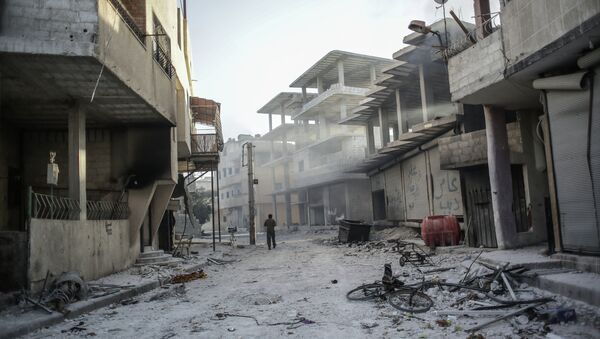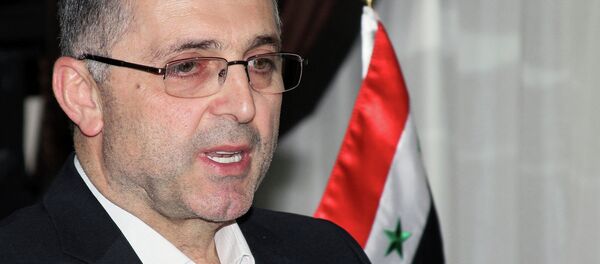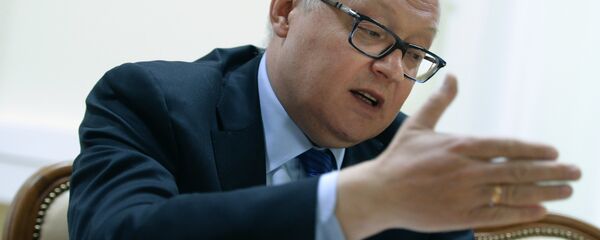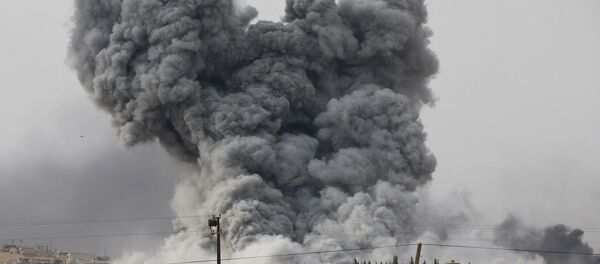"Iran and Russia have the real power to influence indirectly the disturbing events that are unfolding in Syria and throughout the region. That's enough to… prevent foreign intervention into the domestic affairs of a sovereign Arab state," Khaled Abboud, secretary with the People's Council of Syria, said.
The Syrian lawmaker described the existing ties between Damascus, Tehran and Moscow as a "defensive alliance" saying together they were more than capable of averting Syria being split-up and the escalation of a regional conflict into a "bloodbath".
Syrian Prime Minister Wael Nader Halqi is currently in Iran on the invitation of the country's first Vice-President Isaac Jahangiri. The Syrian parliamentary secretary said the primary goal of Halqi's visit was to secure a military alliance between the two Shia countries.
According to Abboud, the West has been shaping Middle Eastern politics for decades, with Washington building political and military alliances with many countries in the region.
"They [alliances] were taken for granted despite their negative impact on the fates of entire nations, since they were aggressive and predatory," he said.
By contrast, the fledgling alliance between Damascus, Tehran and Moscow serves to settle the ongoing crisis in Syria. "There is no doubt this is being done in the interest of the public".
The Islamic State, a Sunni jihadist group, first reared its head in Syria in 2012 and has since extended its attacks to Iraq, prompting Washington to create a coalition of over 60 states in August 2014, allegedly to roll back IS insurgency. It also vowed support for what the United States called "moderate opposition" fighting the government of Syrian President Bashar Assad.
Earlier in December, Washington said it was not going to coordinate its anti-IS campaign with Tehran, considered a major power in the region.




